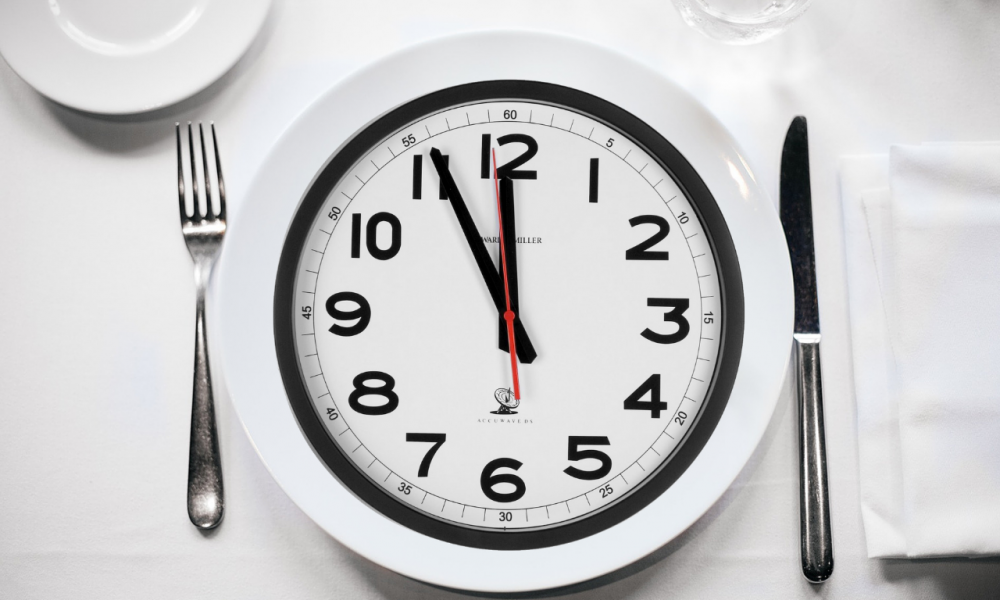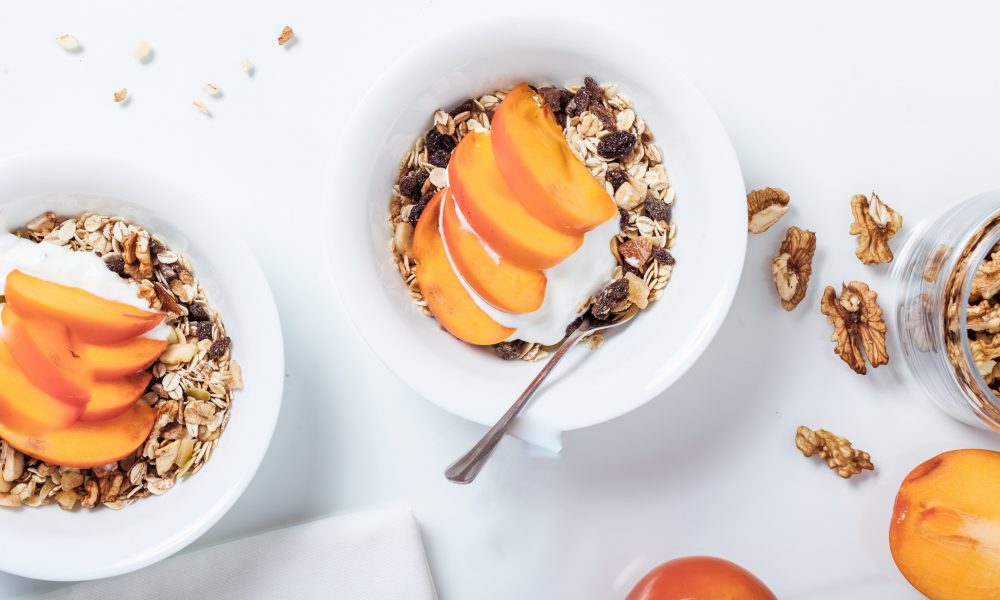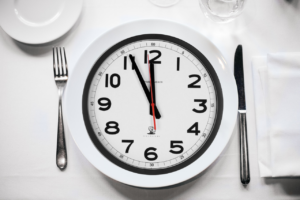
What is Pre-Exhaust Training?
Pre-exhausting is an interesting muscle building technique that’s gaining much popularity. But if you’ve been following me long enough, you know I don’t give a flying a fairy what’s popular or not.

We all have that friend who won’t shut up about intermittent fasting. On the other hand, we can all think of another friend who religiously worships breakfast and says skipping meals is dangerously unhealthy.
You’re probably reading this somewhere stuck in the middle, not sure what to believe. Does intermittent fasting really work? Or could it be dangerous for your health? What are the scientific pros and cons to it?
All of these questions will be answered and more, my friend. Let’s dive into it.
Intermittent fasting is an eating style that despite the recent hype, has actually been around for centuries. Many cultures and religions practice some form of fasting on a regular or irregular basis. Intermittent fasting is also referred to as time-restricted eating which can be used interchangeably.
To do it, you simply limit the time you’re able to eat during a 24-hour period while fasting the remainder of the time. You can still drink water and low-calorie drinks like tea at any point.

There are many variations of intermittent fasting, some of which bend the rules a bit, but in general the most common approach is a 16:8 fast, meaning you don’t eat for 16 consecutive hours a day and eat all your meals within the other 8 hour window.
Most people do this by skipping breakfast and eating their first meal in the afternoon.
Here’s an example:
Pretty simple stuff huh? In fact, if you really think about it, intermittent fasting is simply a glorified way of skipping breakfast for most people. (yes, you can skip dinner too, but most don’t).
Thanks to fancy marketing, it sounds flashier than it actually is. At it’s core, it’s merely shortening your eating window and skipping a meal (maybe 2).
Regardless of it’s subtle simplicity, so called fasting experts will claim it’s a magical diet with miraculous health benefits. On the other end of the spectrum, you’ll also have old school dorks who claim skipping breakfast or skipping meals will tank your metabolism worse than the 1929 stock market crash.
Let’s find out where the truth lies.
Usually, intermittent fasting is done to lose fat. Does this actually work?
It can and in many cases does, but how it causes you to lose fat is quite misunderstood. You see, you don’t lose fat from any unique fasting mechanism. You lose fat because you end up eating in a caloric deficit meaning you end up eating fewer total calories than you burn over time.
A caloric deficit is always needed for long term weight loss.
Fortunately, the nature of fasting can put you in a deficit with relative ease (11). It doesn’t take a rocket scientist to figure out if you completely cut out a meal and limit the time you’re allowed to eat, you’re likely to eat fewer total calories than you used to.
But when total calories are matched, research shows fasting is not superior to other forms of caloric restriction (1,27,30).
We literally have 5 systematic reviews on this (3,4,5,29,45). For those who aren’t as nerdy as me, a systematic review is an epic study of studies. One is usually more than enough to give us a definitive conclusion on a topic.
All 5 combined looked at short term and long term effects in a variety of subjects which all concluded the same thing. Intermittent fasting causes weight loss because it restricts calories. In every single study, when you compare it to other forms of caloric restriction, the results are the same when the deficit is equal.

There’s no mythical fat burning magic with fasting. It simply causes you to unknowingly eat less.
Even when you look at other variations of intermittent fasting, you see the same conclusions.
This study showed alternate day fasting did not cause more weight loss or improve adherence when compared with daily caloric restriction (2).
Another 2 studies showed fasting heavily twice a week was not superior to standard caloric restriction (6,7).
On top of this, don’t forget fasting may even backfire. Some people overcompensate after their fasting window and eat too much during the feeding window, thus negating any weight loss (35).
So as you can see intermittent fasting is definitely a viable strategy to lose weight, but it’s not this superior diet people make it out to be. Some of my clients do it based on preference. If you can stick to it consistently without overcompensating, that’s great, but if you don’t want to do it, that’s cool too.
When nutrition gurus promote a diet, it’s advantageous to list as many health benefits as possible even if they aren’t true. This often happens with intermittent fasting.
We just learned fasting is not superior for weight loss, but does it have any superior health benefits as often claimed?
No not really. All proclaimed health benefits of fasting occur because of caloric restriction, not the fast itself.
This is seen consistently in human research on a variety of subjects and is true for everything ranging from cholesterol levels, increased insulin sensitivity, reduced inflammation, blood lipids, decreased risk of illness, mitophagy, and autophagy (4-9,27,29,30,36-39,44).
Simply being in a caloric deficit regardless of fasting will produce the exact same health benefits (28).
The only time, I’ve seen somewhat convincing evidence that intermittent fasting has additional benefits apart from a caloric deficit is in overweight or unhealthy individuals (19,20). And even then, we have quality evidence against this (27,38,39,42).
So long story short, fasting doesn’t have any superior health benefit apart from a caloric deficit in healthy people (25,37). Thus, losing fat and getting leaner is health enhancing to the same degree regardless if you fast or not.
Beyond health and fat loss, many fasting gurus claim fasting is the secret sauce to enhancing your metabolism.
They’ll claim it helps you metabolize fat better because you’re not taking in any food. This is partially true, but science paints a fuller picture. Fasters are able to burn more fat during their fast, but also burn less carb. This ratio reverses once they start eating (22).
Furthermore, breakfast eaters will burn less fat during the morning and more carbs. This ratio reverses as well (22).
The end effect is the same exact fat loss as discussed earlier. There is no real advantage when calories are equated for (23).
In fact, some research finds extremely long fasts can reduce your physical activity levels (44).
Science just showed us, fasting isn’t as magical as fasting fanboys claim it to be, but is it as bad as anti-breakfast skippers claim it to be?
Let’s look at the potential drawbacks.
Some people believe intermittent fasting is overly detrimental because skipping breakfast will crash your metabolism. These are the same dorks who still sleep with a princess nightlight and believe breakfast is the most important meal of the day.

Thankfully, research shows us breakfast is not some holy meal you have to eat. Consistent research shows skipping breakfast doesn’t affect your metabolism and has no impact on health (10,21).
Many people also claim skipping breakfast will cause you to overeat in your later meals. This is possible, but largely untrue. Fasting can even be appetite suppressing (26).
A recent systematic review shows skipping breakfast generally causes you to eat fewer total calories for the day than those including breakfast (11,12).
In fact, one study shows if you force non-breakfast eaters to eat breakfast, they end up overeating and gaining fat (13). This is why trainers who still preach the whole breakfast is the most important meal mantra are idiots.
Long term, fasting doesn’t seem to hinder performance in strength or endurance (15,16). It also doesn’t increase performance either (24).
In the short term, performance is hindered if you train fasted in the morning. This study in habitual breakfast eaters showed morning workout performance was better with a high carb meal prior to exercise compared to training fasted (14). Therefore, training fed is the better safe than sorry option especially if you’re used to it.
This means to optimize strength training performance for intermittent fasters, training should be done after your feeding window has started to ensure food is in your system. However, for endurance performance, even eating after a fast to make up for a lack of fuel earlier in the day still hinders performance in the evening slightly (40).
So for endurance athletes, intermittent fasting shouldn’t be the default protocol.
One of the biggest knocks against intermittent fasting is that it causes muscle loss. Many bodybuilders believe going a few hours too long causes your body to eat away your precious biceps and calves.
However, this is another myth about intermittent fasting. The research shows you don’t lose muscle and retain it just fine while fasting as long as you end up eating the same amount of calories and protein.

In untrained subjects, eating one meal kept the same amount of muscle as eating three without strength training (17).
In trained lifters, doing a standard 16:8 fast paired with strength training resulted in the same muscle retention as those who didn’t fast (15).
Other lines of research in trained lifters strength training shows retaining muscle and building muscle in a deficit is unaffected by intermittent fasting with a 16:8 protocol (25,31).
Finally, there’s a neat study in Muslim bodybuilders who would be more prone to muscle loss than anyone because of their low body fat percentage (18). It compared 2 groups training during Ramadan. One group trained fed and the other trained fasted. Both groups didn’t lose any muscle. This study not only shows intermittent fasting doesn’t cause muscle loss, but that strength training specifically while fasted isn’t as bad as commonly thought.
We know it’s certainly possible to build new muscle while on a fasting diet based on some of the studies I just discussed where hypertrophy occurred during a deficit.
But what’s possible and optimal are 2 different things. Unfortunately, we don’t have any good research on fasting during a caloric surplus.
But based on research on protein frequency, it’s probably not optimal because a short feeding window prevents frequent protein distribution as well as making it hard to eat enough total calories.
Furthermore, if you lift while fasted, you increase muscle breakdown immediately (43).
And mechanistically, fasting reduces IGF-1 levels (an anabolic hormone) while increasing muscle protein breakdown after 15 hours (32,33). Extended fasting also increases your stress hormone which can breakdown muscle tissue (41).
In other words, fasting will at best match muscle retention/gain at maintenance or a deficit, but at worst, it will be suboptimal in a surplus. Not eating will never be more anabolic than eating.
Regardless of what energy balance you’re in, if you do choose to do intermittent fasting, training after you break the fast is most optimal. This allows you to sandwich your workout with protein and optimize protein timing in a diet that has fewer meals to play with (34).
Based on the current research and experience with my clients, here’s everything you need to know about intermittent fasting and if you should do it.
So while intermittent fasting isn’t this magical diet marketers claim it is, it’s still a deeply viable eating strategy for fat loss with no significant drawback.
You should do it if it aligns with your goals and you’re able to stick to it consistently. If you’re not used to skipping breakfast, it will take some getting used to, but some practical benefits include being able to eat bigger meals and not having to worry about cooking frequently.
If you do decide to try it, here are a few different variations you can try:
Meng H;Zhu L;Kord-Varkaneh H;O Santos H;Tinsley GM;Fu P; “Effects of Intermittent Fasting and Energy-Restricted Diets on Lipid Profile: A Systematic Review and Meta-Analysis.” Nutrition (Burbank, Los Angeles County, Calif.), U.S. National Library of Medicine, pubmed.ncbi.nlm.nih.gov/32428841/.
JB;, Headland ML;Clifton PM;Keogh. “Impact of Intermittent vs. Continuous Energy Restriction on Weight and Cardiometabolic Factors: A 12-Month Follow-Up.” International Journal of Obesity (2005), U.S. National Library of Medicine, pubmed.ncbi.nlm.nih.gov/31937907/.
Stratton, Matthew T, et al. “Four Weeks of Time-Restricted Feeding Combined with Resistance Training Does Not Differentially Influence Measures of Body Composition, Muscle Performance, Resting Energy Expenditure, and Blood Biomarkers.” Nutrients, MDPI, 17 Apr. 2020, www.ncbi.nlm.nih.gov/pmc/articles/PMC7231047/.
Nørrelund, Helene. “The Metabolic Role of Growth Hormone in Humans with Particular Reference to Fasting.” Growth Hormone & IGF Research, Churchill Livingstone, 21 Mar. 2005, www.sciencedirect.com/science/article/abs/pii/S1096637405000201.
MW;, Tsalikian E;Howard C;Gerich JE;Haymond. “Increased Leucine Flux in Short-Term Fasted Human Subjects: Evidence for Increased Proteolysis.” The American Journal of Physiology, U.S. National Library of Medicine, pubmed.ncbi.nlm.nih.gov/6476111/.
A;, Cribb PJ;Hayes. “Effects of Supplement Timing and Resistance Exercise on Skeletal Muscle Hypertrophy.” Medicine and Science in Sports and Exercise, U.S. National Library of Medicine, pubmed.ncbi.nlm.nih.gov/17095924/.
James, Ryan, et al. “Anticipation of 24 h Severe Energy Restriction Increases Energy Intake and Reduces Physical Activity Energy Expenditure in the Prior 24 h, in Healthy Males.” Appetite, Academic Press, 26 Apr. 2020, www.sciencedirect.com/science/article/abs/pii/S0195666319315636.
Mehrabani, Sanaz, et al. “The Effect of Fasting or Calorie Restriction on Mitophagy Induction: a Literature Review.” Wiley Online Library, Springer Nature, 27 Aug. 2020, onlinelibrary.wiley.com/doi/abs/10.1002/jcsm.12611.
A;, Bagherniya M;Butler AE;Barreto GE;Sahebkar. “The Effect of Fasting or Calorie Restriction on Autophagy Induction: A Review of the Literature.” Ageing Research Reviews, U.S. National Library of Medicine, pubmed.ncbi.nlm.nih.gov/30172870/.
Y;, Vitale R;Kim. “The Effects of Intermittent Fasting on Glycemic Control and Body Composition in Adults with Obesity and Type 2 Diabetes: A Systematic Review.” Metabolic Syndrome and Related Disorders, U.S. National Library of Medicine, pubmed.ncbi.nlm.nih.gov/32780629/.
Lowe DA;Wu N;Rohdin-Bibby L;Moore AH;Kelly N;Liu YE;Philip E;Vittinghoff E;Heymsfield SB;Olgin JE;Shepherd JA;Weiss EJ; “Effects of Time-Restricted Eating on Weight Loss and Other Metabolic Parameters in Women and Men With Overweight and Obesity: The TREAT Randomized Clinical Trial.” JAMA Internal Medicine, U.S. National Library of Medicine, pubmed.ncbi.nlm.nih.gov/32986097/.
Metcalfe, Richard S, and Additional informationFundingThis study was funded by Swansea University. “Omission of a Carbohydrate-Rich Breakfast Impairs Evening Endurance Exercise Performance despite Complete Dietary Compensation at Lunch.” Taylor & Francis, www.tandfonline.com/doi/full/10.1080/17461391.2020.1797890.
Benjamin D. Horne, PhD. “Limited Evidence for the Health Effects and Safety of Intermittent Fasting in Type 2 Diabetes.” JAMA, JAMA Network, 28 July 2020, jamanetwork.com/journals/jama/article-abstract/2768095.
Yasuda. “Breakfast before Resistance Exercise Lessens Urinary Markers of Muscle Protein Breakdown in Young Men: A Crossover Trial.” Nutrition (Burbank, Los Angeles County, Calif.), U.S. National Library of Medicine, pubmed.ncbi.nlm.nih.gov/33418493/.
Grab my free checklist on how to defeat your worst food cravings

Pre-exhausting is an interesting muscle building technique that’s gaining much popularity. But if you’ve been following me long enough, you know I don’t give a flying a fairy what’s popular or not.

There’s many misconceptions between compound and isolation exercises. Many people think isolation exercises are pointless, redundant, and unnecessary.

Does intermittent fasting really work? Or could it be dangerous for your health? What are the scientific pros and cons to it?